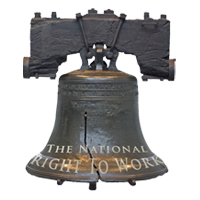'70s Radical Mark Dayton Gets Court Smackdown for his Big Labor Scheme
Minnesota Judge Dale Lindman ruled that Gov. Mark Dayton's Executive Order (EO) calling for the unionization of child care providers is unconstitutional. Judge Lindman, an appointee of Gov. Arne Carlson, said that Gov. Dayton's EO is "an unconstitutional usurpation of the Legislature's right to create or amend laws", which "is a violation of the Separation of Powers principle." The Examiner called it s "stinging defeat for Gov. Dayton, AFSCME and the SEIU." Judge Lindman said that the BMS doesn't have statutory authority through Chapter 179 to get involved in this dispute, adding that they only have the authority to mediate in employer-employee disputes. HotAir.com weighs in on the news: Dayton attempted to bypass the state legislature in this effort by declaring through executive order that day-care centers that indirectly receive state aid through their clients are in effect public-sector workplaces — a definition not found in law or in legislative intent. In fact, as Gary Gross points out, it arguably contravenes state law. That way, Dayton could order an election that would allow his union allies to force their way into day-care workplaces, including many independent operations, and start extracting dues on a massive basis. I use the word extreme for a couple of reasons. First, it fits; had Dayton succeeded in his imposition of public-worker status, the precedent established would have been so broad as to threaten the very notion of a private-sector workforce altogether.







